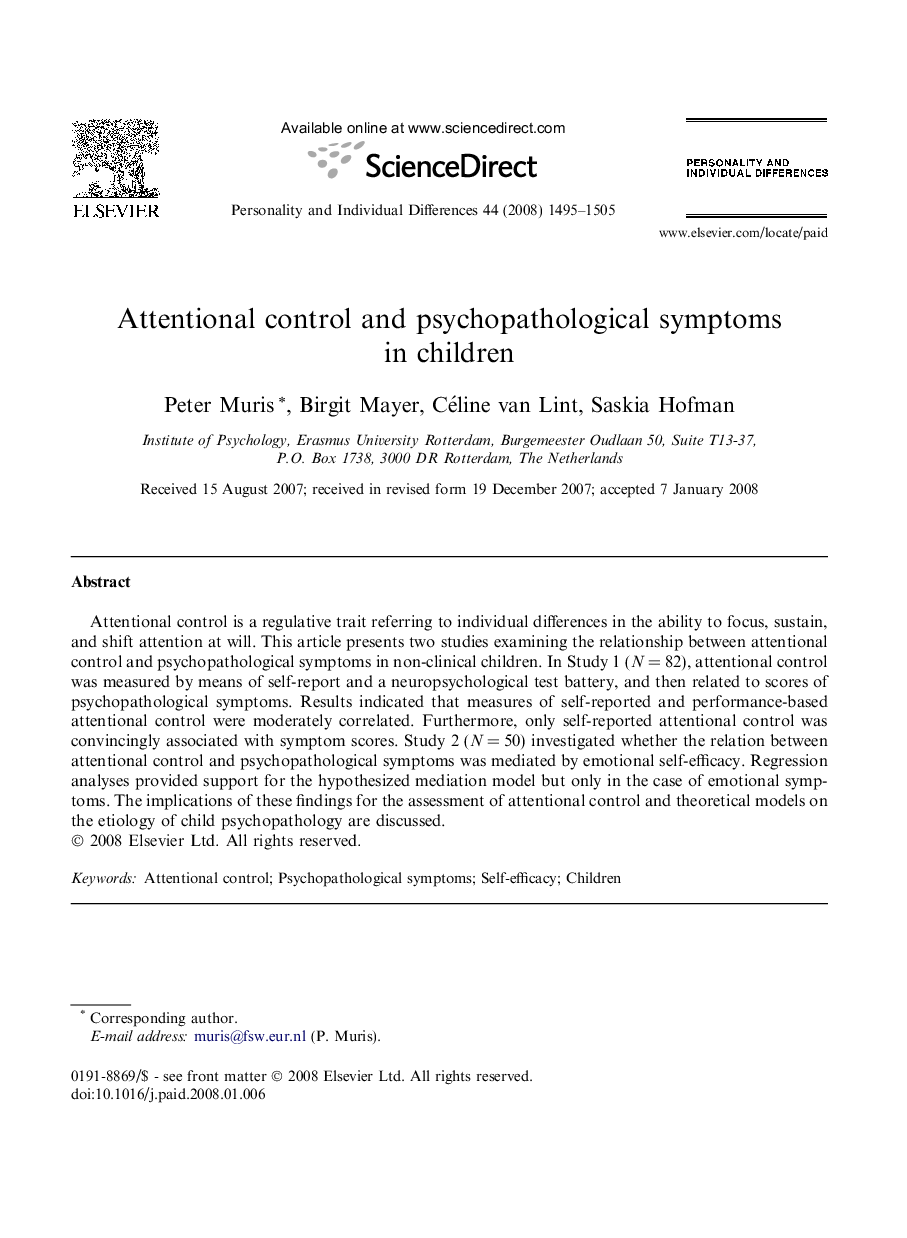| Article ID | Journal | Published Year | Pages | File Type |
|---|---|---|---|---|
| 892633 | Personality and Individual Differences | 2008 | 11 Pages |
Attentional control is a regulative trait referring to individual differences in the ability to focus, sustain, and shift attention at will. This article presents two studies examining the relationship between attentional control and psychopathological symptoms in non-clinical children. In Study 1 (N = 82), attentional control was measured by means of self-report and a neuropsychological test battery, and then related to scores of psychopathological symptoms. Results indicated that measures of self-reported and performance-based attentional control were moderately correlated. Furthermore, only self-reported attentional control was convincingly associated with symptom scores. Study 2 (N = 50) investigated whether the relation between attentional control and psychopathological symptoms was mediated by emotional self-efficacy. Regression analyses provided support for the hypothesized mediation model but only in the case of emotional symptoms. The implications of these findings for the assessment of attentional control and theoretical models on the etiology of child psychopathology are discussed.
